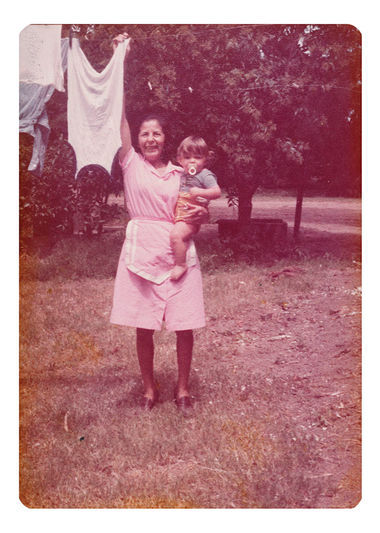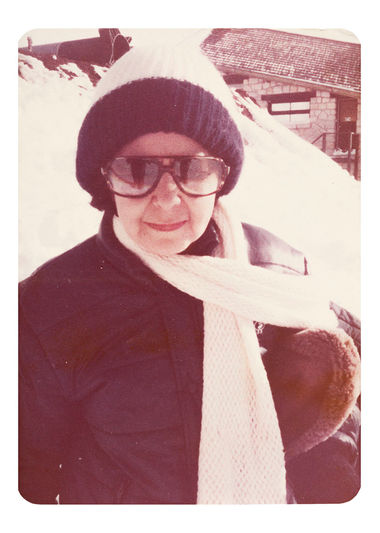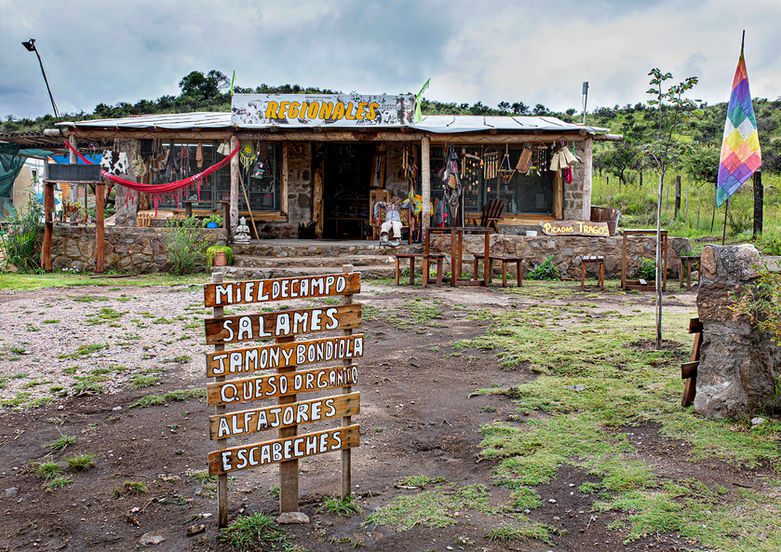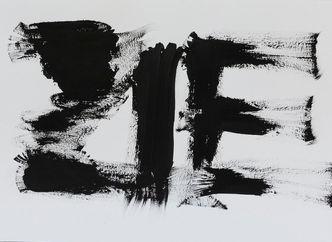mother zoe

I met Constanza Oxenford in her condition of skillful and sensitive photographer. At the same time, I knew immediately that her ductility in this field was also evidence of a restless vocation to advance expressively in other fields, such as graphic practice and, opportunely, in the testimonial rescue and installation languages, physiognomies that she now exhibits in MOTHER ZOE.
Oxenford successfully articulates the coordinated functionality of essay and personal archive, poetic elaboration and intimate revelation; a peculiar coexistence in diversity that in this case seems more necessary than ever, given the spiritual and ethical demands that the artist had imposed on herself when approaching the project.
Where the landscape of the individual world stands as analogous to the conjuncture of the other, close to definitely shared, more collective, more universal emotions and vicissitudes, the sonority of social reflection becomes inexcusable, an essential ingredient that is perfectly in tune with those other demands. that, in addition to the artistic, occupy the hours and energies of Constanza, and that she, here, will surely want to keep in reserve.
As can be seen, the exhibition consists of a two-dimensional montage of a series of photographs in counterpoint, related to the territorial, biographical, characterological and affective fields that define the story and the profile of its two main characters, illuminated in a kind of prismatic portrait: with Oxenford in the triple role of narrator, witness and co-protagonist. In the manner of a panoramic constellation, a puzzle of words, texts, documentary records, drawings and confessional contributions appeal with unwavering honesty not only to the viewer's emotionality, but also to its critical consciousness. This network of clear intentions and pressing objectives, moved by the urgency of turning what could have been reduced to a mere melancholy anecdote into a broader impact scenario, is what turns MADRE ZOE into a virtual love manifesto with flashes of chronicle of customs, a multifaceted device that makes it easier for us to skip the simple formal enjoyment to commit ourselves to a more compassionate notion of what is human.
Eduardo Stupía
Many women in Argentina, and in Latin American countries, have played the role of mothers to children who are not their children. Women who work as domestic staff in a household but fulfill a function that completely exceeds their job description. I was one of the beneficiaries of this unconditional love. Zoe, the woman who raised me, lovingly exceeded her role, and with an enormous spiritual, emotional, and practical ease, played the role of a mother. Zoe took care of me and my siblings as if we were her children.
Zoe's story is that of a young girl from the countryside, from the province of San Luis, who 75 years ago came to the capital to work, and got a job as a maid, and as a waitress, in a house in Belgrano. My grandmother's house. Zoe then becomes a nanny for my mother and my uncles, in fact she lived with my grandmother until she was 80 years old. My mother separated very young and returned to live in her maternal home with me and my brothers. Mom couldn't play the role of a present mother, no matter how hard she tried. This is how Zoe assumed much of the responsibility for the care and emotional support of my brothers and myself. Nobody asked her to do it, she chose to become our mother. Zoe never married or had children; we were her children.
Five years ago I went to visit her in San Luis with one of my brothers, to a ranch that belonged to her family on the outskirts of Papagayo, where she lives with her sister-in-law. It is a small town, where everyone knows each other; His whole family lives there, brothers, nephews. Going back to his place was like giving a real place to much of his life; and a way that we could all become aware that Zoe does indeed have two families.
Constanza Oxenford




Zoe: for the Greek there were the terms "bios" and "zoe". "Bios" referred to the life of an individual, and was associated with the time of his existence. "Zoe", on the other hand, was life in general, considered as an extra-temporal phenomenon, as undifferentiated eternal life that exists beyond individuals.



gratitude


Vernissage 2021 - OdA Galería
This exhibition was made thanks to the support of Mecenazgo Cultural.
Other shows where Mother Zoe was featured.




.jpg)























































































